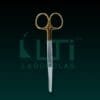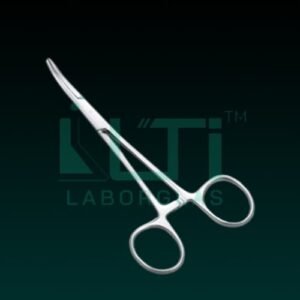- Scissors are used for general purpose in labs & also in experiments.
- Beautifully crafted with precise details so that it gives best cutting to the subject.
- S.S. made
- Available in different sizes: 4″,5″,6″,8″ etc.
- Types: Pointed & Blunt
Blunt-pointed scissors, also known as safety scissors, serve specific purposes in medical and other settings where a pointed tip may pose a risk. Here’s a brief overview of their uses:
- Bandage Cutting: Blunt-pointed scissors are commonly used for cutting bandages and dressings without the risk of accidentally puncturing the patient’s skin.
- Wound Care: They are suitable for trimming and shaping dressings during wound care procedures, offering precision without the concern of sharp points.
- Pediatric Care: Blunt-pointed scissors are often employed in pediatric settings where there is a need for caution to prevent accidental injuries while trimming or cutting materials.
- First Aid Kits: These scissors are commonly included in first aid kits for their safe and versatile use in cutting medical tapes, gauze, and other materials during emergencies.
- Orthopedic Cast Removal: Blunt-pointed scissors may be used in orthopedics for safely cutting and removing casts without posing a risk of injury to the patient’s skin.
- Geriatric Care: In care settings for the elderly, where skin may be more fragile, blunt-pointed scissors are used for tasks like cutting clothing tags or bandages.
- Emergency Situations: In emergency medical situations, these scissors are suitable for cutting clothing to access injuries without causing additional harm to the patient.
- School and Childcare: Blunt-pointed scissors are often recommended for use in educational settings and childcare to minimize the risk of accidental injuries among children.







